Court rejects Aliyu Abubakar’s statements implicating Adoke, says EFCC violated the law
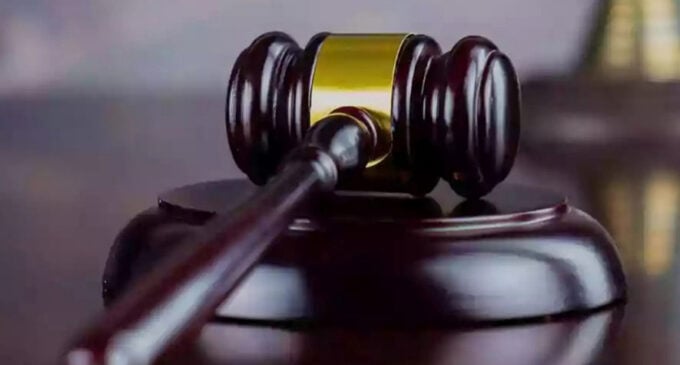
Statements made by Aliyu Abubakar, a property developer, to implicate Mohammed Bello Adoke, former attorney-general of the federation, in a money laundering case have been rejected by a federal high court sitting in Abuja.
Abubakar had told the court in July 2022 that the Economic and Financial Crimes Commission (EFCC) asked him to implicate Adoke over allegations of money laundering in exchange for his freedom.
The property developer said Bala Sanga, then-EFCC prosecutor, asked him on December 31, 2019 to claim that he gave Adoke $20 million and former President Goodluck Jonathan $50 million “so that I would not be detained into the new year”.
He said he was then forced to sign a prepared statement with the threat that he would be detained on the orders of Ibrahim Magu, then-EFCC chairman, if he did not cooperate with the anti-agency.
Ruling in the trial-within-trial on Monday, Justice Inyang Ekwo held that all the statements made to the EFCC by Abubakar were obtained in breach of the law.
Ekwo held that the statements were obtained by intimidation, inducement, harassment and in a hostile environment — and, therefore, “inadmissible”.
He rejected the statements and ruled that the EFCC cannot rely on them for prosecution.
THE CASE IN SUMMARY
On August 4, 2020, the EFCC had arraigned Adoke (first defendant) and Abubukar (second defendant) before Ekwo on allegations of money laundering.
The agency alleged that Adoke made a cash payment of $2,267,400 to Unity Bank in 2013 in contravention of money laundering laws.
Adoke, in his memoir, said Abubakar had in 2011 offered him a property for N500 million out of which Unity Bank provided a mortgage of N300 million, which was then equal to about $2.2 million.
He said when he could not raise the funds to pay his equity contribution of N200 million, Abubakar refunded the mortgage to Unity, repossessed the property and sold it to the Central Bank of Nigeria (CBN) in 2013.
Abubakar then refunded the N300 million mortgage to Unity Bank, Adoke wrote.
However, EFCC’s star witness in the trial, Rislanudeen Mohammed, who was the acting MD of Unity Bank when Abubakar refunded the mortgage in 2013, told the court that there was no money laundering involved in the transaction, insisting that it was “transparent and legitimate”.
Although the case before Ekwo does not mention the controversial OPL 245 deal, the EFCC is using the same particulars to prosecute Adoke, Abubakar and others in another suit before a Federal Capital Territory (FCT) high court.
WHAT TRANSPIRED COURT ON MONDAY?
In the case before Ekwo marked FHC/ABJ/CR/39/2017, the court ruled that although the statement made on August 6, 2015 was by Abubakar, he was not pre-cautioned and this was in breach of his fundamental human rights.
The presence of six EFCC officers in the interrogation room was a clear act of intimidation, the court ruled, holding that the statement was made in an environment of “apparent intimidation” , was not made voluntarily and cannot be admitted.
The court also held that it was clear on evidence that the interrogation of Abubakar by six officers on November 30, 2015 was hostile and cannot be admitted as evidence.
Statements made by Abubakar on January 16 and 17, 2016 were typed by an EFCC officer who then asked him to sign, the court said, and when he protested that he did not understand what was written, he was threatened with detention.
In view of these facts, the court ruled, “the purported statements were made in an oppressive manner, as such contrary to Section 29 (5) of the Evidence Act, 2011”.
The court, in its ruling, further said it found that it was Abubakar’s lawyer that handwrote the statement of December 31, 2019 as dictated to him by the property developer but in the presence of six EFCC officers.
This, the court said, created an “oppressive environment” and was, as such, an act of intimidation.
The court held that threatening Abubakar to make his statement takes away the voluntariness and it was inadmissible.
On his statement of January 6, 2020, the court held that it was taken in the presence of six EFCC officers wherein the the second defendant was asked to implicate Adoke.
The actions of the investigators amounted to inducement by way of leniency and intimidation, the court said, declaring the statement as inadmissible.
Another statement made by Abubakar on December 31, 2020 was obtained after he had been detained for six days, the court said.
This was intended to “weaken the body, soul and spirit” of the second defendant, it said and ruled that the evidence was obtained in an oppressive environment and as such inadmissible.
Overall, it held that under the provision of Section 29 (2) (a) of the Evidence Act, 2011, statements made under oppression, torture, violence or inhuman treatment are inadmissible in court.
All the statements purporting to be Abubakar’s which the EFCC sought to tender as evidence were found to be inadmissible and rejected by the court.
The matter continues on Wednesday, July 18.






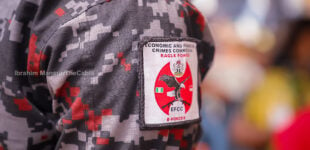

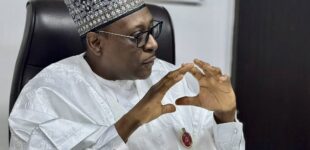
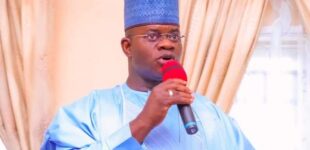


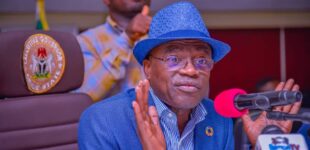


There are no comments at the moment, do you want to add one?
Write a comment